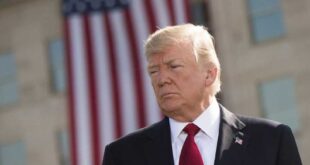By Shehab Al Makahleh
After seven years of war in Syria, which has already thwarted the Chinese and the Iranian attempts to reach to the Mediterranean, Russia started planning the next phase of reconstruction process of Syria, which is estimated at $400-500 billion.
Though Russia has sent its troops to Syria, which cost billions of Russian financial budget, China was waiting to see the outcome of the war as the Chinese government has never been in a rush because they are sure they will have a share in the construction process as no other country would be able to fund rebuilding Syria.
There is no competition between China and Russia in Syria; there is a tough competition between Russo-Chinese axis and the Iranians.
The obstacles to Russian, Chinese and Western ambitions in Syria are the presence of Iranian and other troops on the ground. China, Iran, Russia consider Syria a strategic hub on the crossroads to the Middle East, Europe, Asia and Africa. China is poised to earn ample contracts and to multiply its economic benefits not only in Asia but also elsewhere in the world, starting from Syria.
With the Syrian war almost at final stage, concerns of the reconstruction of Syria are on the table. Russia and China seek to launch the process as soon as possible, benefiting from stability and peace in most of Syria. Both Moscow and Beijing are trying to convince Western countries that the situation in Syria is stable and safe to start the reconstruction process, which is estimated at $500 billion.
This, of course, cannot be achieved while Iranian influence is increasing. This has prompted Russians to use the Iranian card to jumpstart negotiations with the West regarding the reconstruction process. Moscow has the potential to reduce the strategic presence of Iranian troops and advisers in Syria because Russians are the most prominent force on the ground in the war-torn country.
Just recently, Russia has repeatedly demanded other countries to be ready to start the reconstruction process of Syria. Russian Defense Minister Sergei Shoigu has earlier asked other countries to be ready to take part in the peacemaking process in the war-ravaged country through humanitarian aid and reconstruction process of the country’s infrastructure.
After Russian military intervention in Syria in September 2015, it has become apparent that security in the region and mainly in Syria can only be achieved through concerted efforts.
Moscow has the potential to reduce the strategic presence of Iranian troops and advisers in Syria because Russians are the most prominent force on the ground in the war-torn country
Shehab Al-Makahleh
Financial resources
The war in Syria and the expenses that the Russian army had to bear have caused significant losses in financial resources for the Russian government, if not depleting, most of the military budget.
This has been heavy on the Russians. Thus, Moscow has started to invite other countries to participate in the reconstruction process of Syria.
Given the fact that the Syrian government has three main allies: Russia, China and Iran, the Russians want to have the lion’s share in Syria; however, the Iranians seek to have a corridor to the Mediterranean Sea, while China seeks to have a better economic and strategic presence in Syria that facilitates its own Silk Road project.
The main focus of Russia and China will be to start with housing and infrastructure projects including energy, telecommunications and transportation, leaving the construction of buildings and houses to regional countries including those in the Gulf.
Thus, for Russia and China to succeed in their businesses in Syria, they should remove the barrier: Iran. This has become clear in the recent few weeks when Moscow called for pulling out foreign troops from Syria: This applies to Iran, the US and Turkey.
Though the Syrian government will be giving priority to Russian companies, the Chinese will be also the ones to fund the process. In mid-April, the Syrian government estimated the cost of reconstruction at $400 billion and that the reconstruction process will take up to 15 years.
Reconstructing Syria
However, Beijing seeks a double opportunity to reconstruct Syria, to proceed with its Silk Road and to reach the Mediterranean Sea to have more economic and political power. Since September 2015, Russia has spent almost $4 billion on military operations in Syria while Iran has spent over $24 billion.
This depletion of financial resources of both Russia and Iran will pave the way for China to lead in terms of investments the war-torn country as Western nations also have major financial deficits in budgets, with expectations to witness major fiscal shortfalls due to tariffs rift with the US as the European returns and revenues from exports to the US will decline.
Chinese business officials started negotiations with their Syrian counterparts last April. Both Syria and China look forward to increasing trade exchanges from 2 billion to US$30 in the coming five years.
A big Chinese delegation visited Homs province early 2018 and discussed means to enhance investments including reconstruction contracts, guaranteeing public works, communications and technology deals. At present, Beijing considers Syria as the best arena for proxy war for control of Syria when war is over to exercise more pressure on Washington economically, seeking further American concessions.
As for Iran, features of a Russian-Iranian conflict, mainly in terms of reconstruction, have come on scene recently. Major Iranian media outlets close to the government have covered such issues. Some of them have also expressed disappointment, saying that Syrian government’s agreement with Russians has excluded Iran and its companies from the reconstruction process.
Iranians complain that Russians have made good use of the Iranian presence in Syria, they benefit from Iranian forces to expand the Syrian army’s control over areas which were controlled by the armed opposition.
Russia knows that Western countries and the Arab Gulf states will only incept the reconstruction of Syria if a lucrative settlement and a rewarding deal are reached; this cannot be achieved unless Iran is excluded from the scene in Syria. Also, Russia cannot avoid the security of Israel. This requires keeping Iranian presence in Syria to the minimum and under Russian surveillance.
________________________
First published at Al Arabiya
 Geostrategic Media Political Commentary, Analysis, Security, Defense
Geostrategic Media Political Commentary, Analysis, Security, Defense





